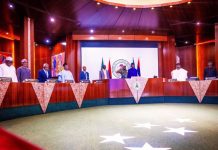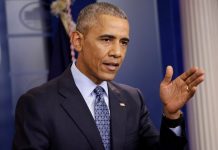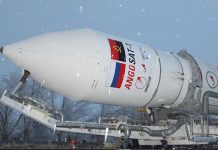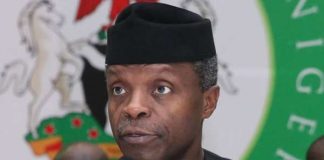Analysis by Pat Chukwuelue
The General of the People’s Army – that was the way the late Chukwuemeka Odumegwu-Ojukwu was addressed by Igbo youths shortly before the collapse of Biafra Republic in January 1970. And indeed, he was not just a Head of state; he was a man of the people. The decision to proclaim the Republic of Biafra on May 30, 1967, out of the territorial space known as Eastern Nigeria, was a collective one. It was not just Ojukwu’s decision. The Consultative Assembly empowered him to ride on after thousands of Igbos resident in the Northern region had been cruelly massacred by Hausa troops and hoodlums.
Without a trained or professional army, Biafra was able to hold Nigerian troops in various battle fronts for all of 30 months, culminating in the end of the civil war on January 10, 1970. Although millions of Igbos died in the process from both hunger and bullets, Nigerian leaders admitted that it was not easy to break the resolve of the Igbo people and their leaders. Now, about 57 years after that historic debacle, talk about the resurgence of Biafra gradually started filling the air.
Some upstarts, or the type of people African politicians prefer to call disgruntled elements, emerged from nowhere claiming to have received inspiration from somewhere to lead a renewed struggle for Biafra. First, there came the Movement for the Actualization of the Sovereign State of Biafra, MASSOB, led by one Ralph Uwazuruike. It appeared not to have a clear focus and a modus operando and soon lost steam. However, it succeeded in generating sympathy and sentiments from like-minds who felt that the revival of the struggle for Biafra would rub positively on their livelihood. Many pro-Biafra groups sprang up in the Southeastern states.
The activities of these pro-Biafra groups, all of them led by youths who neither lived in Biafra nor know anything about Biafra, gained momentum in recent times across the Southeast and beyond.
After the inception into office of President Muhammadu Buhari of the All Progressives Congress, APC, in May 2015, a young man named Nnamdi Kanu, believed to have been a member ofMASSOB, formed what he christened the Indigenous People of Biafra, IPOB. The movement grew wings and flew to all corners of the South-East, due largely to the propaganda of its illegal radio station transmitting clandestinely on 102.1 FM. The programs broadcast on the station have been insulting virtually everyone who is not on the same side with the group. The bunch of outright lies peddled on the station found their way into the hearts of ignorant, gullible and unemployed Igbo youths and incited them to see agents of the Nigerian government as their enemies and persecutors.
At some point in 2016, the federal government said with glee that it had jammed the IPOB radio and knocked it off the air. But till today, Radio Biafra, as the station calls itself, has continued to be on air. Since the arrest of Nnamdi Kanu in 2015, the consciousness of the struggle has spread like wild fire with thousands of the uninformed and unemployed Igbo youths being totally misled to accept that their dream of Biafra is aroundthe corner. Those in the vanguard of the movement and their ardent supporters assert that the march towards self-determination for Biafrans has begun and that the promise land is in sight. They argue that the UN Charter stipulates that any ethnic group that sustains its struggle for self-determination would automatically be granted their desire after a number of years – the kind of fallacy that Americans would call aself-fulfilling prophecy.
The civil war of 1967-1970 was fought on grossly misunderstood impressions and points of disagreement between Igbos on one side and the Hausa/Yoruba fraternity on the other. Although, the war ended with casualties on both sides, the “Reconstruction, Rehabilitation, and Reconciliation” declared by the Nigerian Head of State became mere lip service. The 3Rswere jettisoned soon enough instead of being pursued to their logical conclusion. Successive governments tended to have toed the same path to the extent that while other parts of the country have continued to benefit from the federal government’s infrastructural development and appointments, in particular, the Southeast zone remained marginalized or as many believe, forgotten. Thank God, the Igbos have a popular saying that the fellow rejected by others hardly rejects himself, which explains why the people tend to look inwards in terms of developing their area.
There can be no doubt that the situation in which the Igbos find themselves has given rise to agitations for a sovereign state of Biafra. MASSOB under Ralph Uwazuruike tried to keep the post-civil war struggle in the front burner. But after his detention by the Olusegun Obasanjo administration, the potency in the struggle was badly affected. A leadership crisis had erupted that gave rise to the formation of other pro-Biafra groups including the Biafra Zionist Federation, BZF, led by Onwuka Benjamin and Nnamdi Kanu’s IPOB that came into being in 2014, among other splinter groups.
The dictum that democracy is a game of numbers indeed played out in this scenario as the increase in the number of the groups agitating for self-realization certainly boosted the clamour for Biafra Republic. The IPOB easily overtook all the groups in the struggle due mainly to its well-oiled propaganda network and its uncanny ability to exploit the level of frustration among the youth population. The BZF appeared to be made up of mostly elderly people who show interest primarily in the theory of the primordial and ethnic links between the Igbos of Nigeria and the Jews in Israel and the Diaspora. Nnamdi Kanu’s Radio Biafra has continued to hype this theory and millions of supporters of the separatist movements believe it whole-heartedly.
The inception of Operation Python Dance by the Nigerian military
On many occasions in the past, the Biafra agitation was kept alive with calls by the groups’ leaders for civil disobedience, especially through sit-at-home orders, disruption of public functions, peaceful protests and boycott of government activities. While the leaders of MASSOB and the IPOB argue that the docility exhibited by Igbo politicians is responsible for the neglect and marginalization of the zone, the governors of the Southeast zone blame the agitators for creating unnecessary tension in Igboland, thereby denying them the opportunity to pursue their development projects and attracting top investors from home and abroad.
For many Igbo political, religious and intellectual leaders, there can be no doubt that the zone has suffered from government neglect. But they have continued to call for restraint in the strategies aimed at getting the federal authorities to retrace their steps. The youths, on the other hand, especially those born after the civil war would not listen. Acting on the impulse of apparent impatience, the federal government, in October 2015,deployed the Army to the Southeast in what was officially tagged Operation Python Dance 1, to ensure sanity in the zone. The exercise, which was billed for three months with a major base in Onitsha, Anambra State, according to the Army was to check kidnappings, armed robberies and the violent demonstrations by pro-Biafra groups, especially during the ember months.
Incidentally, the move coincided with the timing of Operation Kpochapu (which means Zero Tolerance for Crime) mounted by Governor Willy Obiano’s administration. Majority of Anambra people hailed the exercise primarily because of the level of crimes in Anambra state, in particular, the rising level of cases of kidnapping of eminent people. For the three months that the exercise lasted, agitations by pro-Biafra groups were suspended and crimes reduced.
The second stanza of the exercise started at the beginning of this month with Umuahia, the Abia State capital, selected as the operational base for the soldiers. The Army announced that Operation Python Dance 2 would last for one month. It is hard to convince anyone that this is a mere coincidence especially as it is well known that the area is the home of Nnamdi Kanu. As some close watchers of the activities of Kanu and his IPOB have put it, the federal government and the Nigerian Army simply decided to take the fight to the lion’s den.
Apparently, the federal authorities believe that since the IPOB recently announced the emergence of the Biafra Security Service, BSS, which is allegedly being trained by some retired soldiers in Kanu’s country home, the group could be on the verge of proclaiming the Republic of Biafra. It will also be recalled that recently Nnamdi Kanu openly declared that the Anambra governorship election scheduled for November 18, this year, would not hold. The attempts by the 5 Governors in the zone to call Kanu to order failed woefully. It is along these lines that one would appreciate why the federal authorities decided to apply force to stop the IPOB from continuing to over-heat the polity.
A lot of credit would go to the Southeast Governors who quickly intervened as soon as the operation commenced. They rallied round and appealed successfully to the federal government to call off the operation and pull back the soldiers from the zone. The soldiers were promptly withdrawn from the streets and the guns have become silent on the Umuahia axis. There are reports that the human rights of members of Nnamdi Kanu’s family and some residents of Umuahia and Aba were grossly violated by the troops at the beginning of the operation. The Abia state government says it is investigating the reports.


















